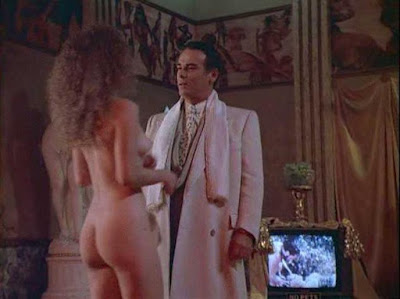November 11, 1988
The Unbearable Lightness Of Being (1988) *****
The best film about the Prague Spring of 1968, Philip Kaufman's "The Unbearable Lightness of Being" is an adaptation of Milan Kundera's excellent novel of the same title. The film tells the story of a young surgeon, Tomas (Daniel Day-Lewis) who attempts to float above the mundane world of personal responsibility and commitment to practice a sex life that has no traffic with the heart, to escape untouched from the world of sensual pleasure while retaining his privacy and his loneliness. His relationships with two women, Juliette Binoche and Lena Olin, as well as various short flings, dominate the story. But the real subject of Kaufman's film is freedom (the 'lightness' of the title). Rita Kempley described the film in Washington Post as a mix of ''glitzy garter belt look of "Cabaret" and the somber Angst of Bergman. Puckered lips and rounded bottoms are intercut with invasion-era newsreels of bodies under sheets. Artful compositions, with hats off to Magritte, are set to the eerie arpeggios of Leos Janacek's score. It's an atmosphere that stirs the heart, the hormones and the head. Allegorically, Tomas is torn between the two women, as he is between East and West, anarchy and order. And the movie is held together by the constant tension between people and nations, the power of love and the love of power''. It's a Hollywood movie, but with a very European sensibility, due not only to the original material, but also to the fact that the script for adapted by the great French screenwriter, Jean-Claude Carrière (''Belle de jour'', ''The Discreet Charm of the Bourgeoisie'', ''Milou en mai'', ''Cyrano de Bergerac'').
Subscribe to:
Comments (Atom)










